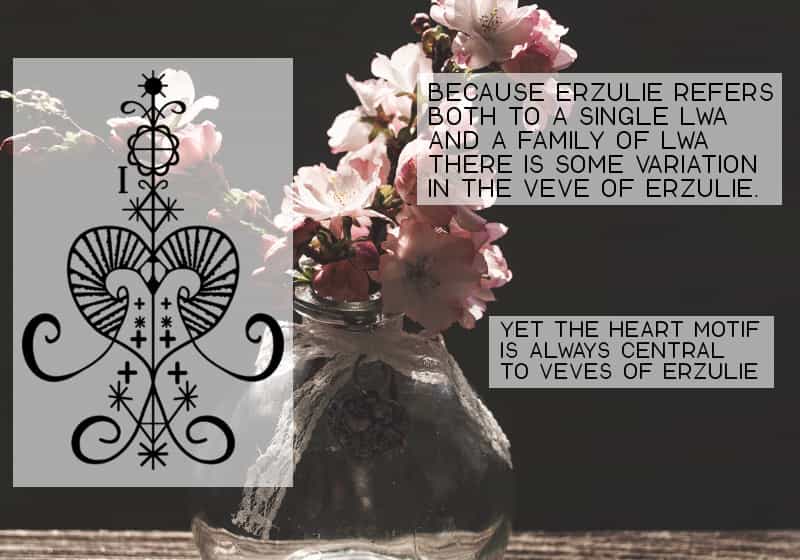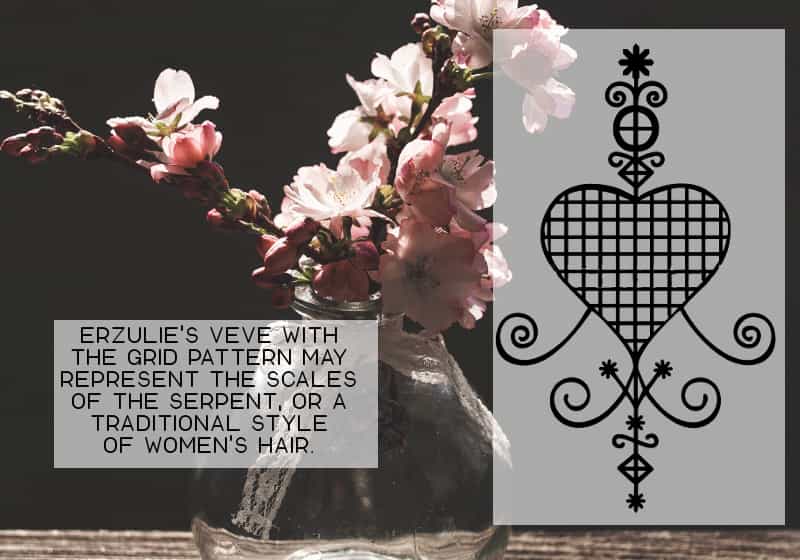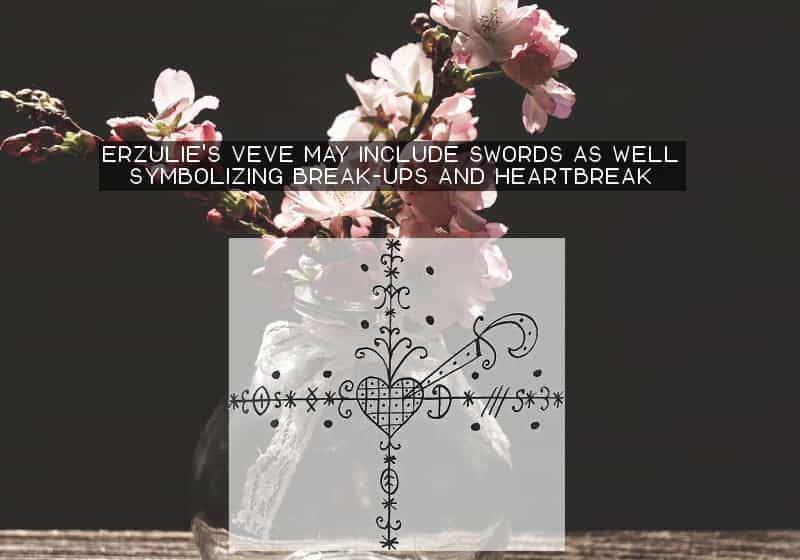Erzulie Freda, Lwa of Love
When we refer to Erzulie, we refer both to a single Lwa and to a family of Lwa. You see, there is some debate if Erzulie is one Lwa with many forms, or if there are many Erzulie. Depending on the rite, we often treat Erzulie as if she is a different entity. At the same time, we speak of Erzulie as if she is one. At the very least, we have at least two major Lwa who are Erzulie: Erzulie Freda and Erzulie Dantor. The latter, Erzulie, or Ezili, Dantor is a member of the Petro family of Lwa. Erzulie Freda is a member of the Rada family. In this article, I will describe primarily Erzulie Freda, but be aware that they do overlap and some of the descriptions will apply to both.
Erzulie is a Lwa associated primarily with the female and the feminine. In Voodoo, as well as in other African diasporic traditions, this means she is also associated with water, particularly with running water in rivers. And of course, Erzulie is the Lwa most commonly associated with love and love spells. Because she is associated with the feminine, she is often the Lwa we seek to petition for beauty spells. Additionally, Erzulie is also a patron Lwa of men who are more feminine.
The full name of Erzulie in Haitian Voodoo is Erzulie Freda Dahomey. Dahomey, the West African kingdom located in what is today the country of Benin, is a clear indicator of her African roots. Voodoo, as with Santeria, Candomble, Palo Mayombe and Obeah, among other religions, is a diasporic tradition from Africa. Dahomey specifically is where the original African Vodoun tradition began and is still practiced to this day. It is the geographical home of the proto-Voodoo religions, alongside the Kongo region.
Erzulie’s Husbands
Erzulie is said to have three husbands, each of whom are also major Lwa: Damballah, Ogun and Agwe. Again it is not clear if Erzulie is one spirit with three husbands or if Damballah, Ogun and Agwe are each married to an Erzulie spirit. Both are plausible - Erzulie is not the only Lwa to have more than one husband (or wife). Interestingly, it is not recommended for Vodouisants who are devoted to Erzulie to focus too much on other Lwa. She is said to become jealous.
Both jealousy and a longing for love characterize Erzulie Freda, particularly when she is associated with Christian iconography. In Voodoo syncretism, where a Catholic saint is symbolically assigned to a Lwa, the Lady of Sorrows, or Mother Mary in a time of sorrow, becomes Erzulie Freda. This iconography describes Mary, the mother of Jesus, as experiencing the seven sorrows in her life: the presentation of Jesus at the Temple, fleeing to Egypt from Herod’s massacre of the innocents, the loss of Jesus in the Temple, Mary meeting Jesus on his walk to crucifixion, the crucifixion itself, the removal of Jesus from the cross, and the burial of Jesus. What we see here is a theme of loss, particularly of a child. This is why Erzulie Freda is also a patron Lwa of mothers, particularly mothers with sick or hurt children, or lost children.
Erzulie has been called the most contradictory of Lwa. As with Mary, she is said to be a virgin. Yet, she is also the patron Lwa of sex workers. She is the Lwa we petition for lust spells and sex spells. She is said to be a young woman, yet as Graman Erzulie she is the old lady of wisdom. As Erzulie Freda she is the patron of bringing couples together, of binding, of love spells. As Ezili Dantor she is the Lwa of break-ups.
Erzulie’s Offerings
Erzulie, as Erzulie Freda, wears white and is served in white. Her offerings consist of white-colored foods and products. White doves or pigeons are traditional, as is cooked chicken breast. The breast, the location of the heart, is symbolic of Erzulie’s control over the heart and love. Erzulie loves feminine perfumes and make-up as offerings. Beauty products of all types can be found on altars for Erzulie. Female clothing and specifically female undergarments are sometimes found as offerings to Erzulie. She accepts cigarettes as offerings of tobacco. Sweet liquors and champagne are good alcohol offerings to Erzulie. Mirrors are a common offering to Erzulie as well.
Interestingly, despite Erzulie’s multiple husbands and her prominent role in love work, she is said to have no children. That is, as Erzulie Freda she has no children. As Ezili Dantor she does, which we will see in the article on Ezili Dantor.
Because Erzulie is a Lwa of wedding and relationships, she is also said to be a Lwa of promises. Erzulie has a strong wrath for people who break their word. She is said to punish those who go back on deals or promises they make. Individuals who keep Erzulie as a patron Lwa are often said to be compelled to be honest, lest they receive punishment from her. This also relates to Erzulie’s prominent role in binding spells, even when the binding is unrelated to love. Fortunately, this makes Erzulie a very dependable Lwa. Many Lwa are said to be fickle or unreliable, but not Erzulie. When she is committed to a task, the task gets finished.
It is traditional in Voodoo services to Erzulie to put on your best clothes and makeup. Erzulie is said to have the most beautiful services. As a Lwa of attraction, the Vodouisants serving her are trying their best to look attractive as well. Further, it’s not enough to look good - Erzulie wants you to feel good as well. Before services to Erzulie, it is recommended to pamper yourself. A long, relaxing bath is a pre-ritual habit for many of the Vodouisants who serve Erzulie.
Erzulie is associated with the planet Venus. Like many Lwa, she has an animal that she is associated with and may appear as: the serpent. From what we have read so far, the serpent may seem counterintuitive. In the West, we often don’t consider the serpent to be a beautiful creature. Yet, in the traditional diasporic traditions like Voodoo, the serpent is an animal associated with beauty.
Erzulie’s Initiates
Here I would like to explain the traditional relationship Vodouisants have with Erzulie. This describes a subset of Voodoo initiates who are devoted to Erzulie. Even if you have not been initiated into Voodoo, this may explain your own experiences with Erzulie.
Vodouisants, Voodoo initiates, who are devoted to Erzulie go through a ceremony where they are married to her. One day a week, sometimes more, a special room and bed is set aside for Erzulie. The room is prepared to her tastes: white candles, perfumes, white cloth, perhaps champagne. A selection of the offerings that Erzulie prefers, as described above in this article. The Vodouisant then spends the night with Erzulie, together in their matrimonial bed.
This is fundamentally a sex ritual or sex magic. This is very typical of Erzulie in traditional Voodoo and a central feature of this rite. In Voodoo ceremonies, we are “ridden” by the Lwa - this is how they come through to us. In the matrimonial rite of Erzulie, this form of spirit possession takes on a sexual nature. It is, in all actuality, sex with the Lwa.
Devotees of Erzulie can be men or women. Both men and women partake in this rite. We can therefore say that Erzulie is bisexual or pansexual. In traditional Voodoo, Erzulie also has a prominent role for gay men and women. We see Erzulie take on a very central role in rituals such as gay love spells, or healing spells for homosexual couples.
Erzulie’s Veve
The veve of Erzulie has more variation than the veve of many other Lwa. As mentioned earlier, this is because Erzulie refers both to an individual Lwa and a family of Lwa. The common central motif of Erzulie’s veve is that it is a heart. This reflects Erzulie’s dominion over love and relationships. Some veves of Erzulie will feature one or two swords bisecting the heart. This reflects the syncretism of Erzulie with the Mater Dolorosa, the Mother of Sorrows, also previously described in this article. Further, this is symbolic of heartbreak: as Erzulie has power over relationships, she also has power over break-ups. The veve of Erzulie Dantor will more frequently feature a sword than the veve of Erzulie Freda, although both often do.
Bisecting the heart is a gridwork with dots. This reflects a traditional hairstyle worn by women. Imagine a hair net if you will. Erzulie, of course, being a Lwa of women. This also reflects both the scales of the fish and the scales of the serpent. Remember, Erzulie is a Lwa associated with water, in addition to a serpent Lwa.
I find the veve of Erzulie to be one of the more intuitive veves. You do not need a background in Voodoo to see the heart and to know what Erzulie is all about. It will be immediately apparent to people from all cultures that this is a symbol of love.
Erzulie's Songs
A traditional song for Erzulie. What we see here is another aspect of Erzulie: her role in the healing of sick children.
In Haitian Creole:
We, Èzili malad o.
We, nanpwen dlo nan syèl o.
Solèy boule tè o.
Èzili malad o,
nou pa gen chans, mezanmi o.
Èzili e! Èzili e! Sa o!
M pa genyen chans, mezanmi,
yon sèl pitit mwen genyen o!
Èzili e! Èzili e! Sa o! O o o!
We, Èzili malad o!
Yon sèl pitit mwen genyen,
Èzili e! Èzili e! Sa o!
In English:
Help, oh Erzulie is sick.
Help, oh there is no water in the sky.
Oh the sun burns the land.
Oh Erzulie is sick,
we don’t have luck, oh my goodness.
Erzulie hey! Erzulie hey! Oh my!
I don’t have luck, my goodness,
oh I have only one child!
Erzulie hey! Erzulie hey! Oh that! Oh oh oh!
Help, oh Erzulie is sick!
Oh I have only one child,
Erzulie hey! Erzulie hey! Oh my!
Below is a song to Erzulie with a focus on fortune and luck. In this song we see Erzulie’s relationship to the water, as well as the protection of those who would go into the water (such as sailors, fishermen, swimmers).
In Haitian Creole:
Èzili o! Èzili sa!
Èzili e! Èzili sa! Enhen!
Nan lanmè kannòt mwen vle chavire.
Fò n priye Bondye
pou moun pa neye.
Èzili e! Fanm chans, Èzili sa!
Èzili manman, fanm chans,
Èzili sa! Enhen!
Nan lanmè kannòt mwen vle chavire.
Fò n priye Bondye
pou moun pa neye.
In English:
Oh Erzulie! Th at Erzulie!
Hey Erzulie! That Erzulie! Oh yeah!
On the sea my canoe wants to flip over.
We have to pray to God
so that people won’t drown.
Hey Erzulie! Good luck woman, that Erzulie!
Mother Erzulie, good luck woman,
That Erzulie! Oh yeah!
On the sea my canoe wants to flip over.
We have to pray to God
so that people won’t drown.
Again we see the motif common in songs to Erzulie: children, the water and luck.
In Haitian Creole:
Mwen pa genyen chans, mezanmi o!
Mwen pa genyen chans!
Mwen pa genyen chans, mezanmi o!
Mwen pa genyen chans!
Yon sèl ti pitit mwen genyen.
L ale navige lan lanmè.
Kannòt chavire avèk li!
Lan lanmè, kannòt chavire!
In English:
I am out of luck, oh good grief!
I am out of luck!
I am out of luck, oh good grief!
I am out of luck!
One lone, small child that I have.
He went off to sail the seas.
The canoe flipped over on him!
In the sea, the canoe flipped over!
A song about an unfaithful husband. This would be typical to use in services preceding spell work for binding, for faithfulness, or other relationship spells when there is cheating or infidelity.
In Haitian Creole:
Èzili mari ou dòmi deyò!
O Metrès Èzili, mari ou
dòmi deyò!
Èzili mari ou dòmi deyò.
Kote sa li pote pou ou?
In English:
Erzulie, your husband slept away from home!
Oh Mistress Erzulie, your husband
Slept away from home!
Erzulie your husband slept somewhere
What does he bring to you?
Yours,
Emmanuel A.E.


